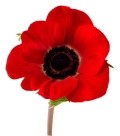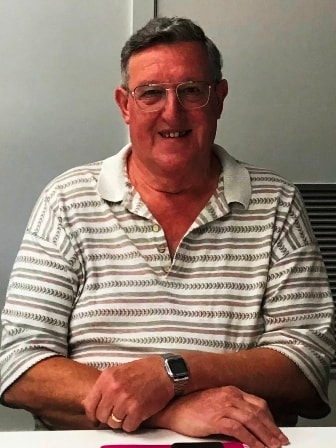
We would wait until the march came by and listen to the many bands that would play as the men and women marched. As my father’s unit approached, I would run out and join him to march the last one hundred metres or so, up to the Shrine forecourt. In those days many of the children marched with their parents for the last section leading up to the Shrine of Remembrance. In later years my father attended the ANZAC Day march in nearby Epping, with a much shorter march and only the returned servicemen and women participating.
I did not serve in the military. My birth date fell outside the National Service ballot. I did however, have a number of friends and work colleagues who served in Vietnam. I became very disillusioned with the way the majority of the population were influenced by a noisy minority, resulting in the disgraceful treatment of our men and women when they returned from Vietnam. Fortunately, in later years, the rhetoric from this noisy minority has been ignored, and the younger generations are now showing respect for the past and current returned military service personnel.
My father and his two brothers all served during the Second World War. My mother had a brother and sister who also served. Whilst my mother did not serve in the military, she did work at the munitions factory at Maribyrnong during the war. Fortunately all returned home safely, but the later years would reveal that whilst they did not have any significant physical scars, they all had mental scars of varying degrees, which for the most part went untreated.
During ANZAC day I like to take some quiet time to sit and reflect on what these service people did for our country. Yes, in many cases they fought battles on distant soils, but the process that they went through ensured that we enjoy the freedoms we have today. I also like to sit and reflect on what the families of the service people who did not return went through. I think about the wives, the mothers and fathers, the grandparents who dreaded the knock on the door from the postman or the telegram boy.
I think about the anguish that the family went through when they realised that there was now a void in their family that will never be refilled. I think about how shattered wives with young children must have been, to learn that their husband had been killed and will possibly be buried in a distant land, away from a family farewell.
I think about the mothers, who in some cases not only lost their husband, but also their sons. I think about the father whose succession plan for the family was snuffed out by the death of his son or daughter in a distant land.
I also think about how the families coped with the issues that the returning ex-service men and women tried to grapple with, largely unassisted. The manner in which these returning people were left largely to their own devices was very disappointing. The impacts will be felt for generations.
LEST WE FORGET
Barry O’Connor.
Benalla U3A.
April 2020.


 RSS Feed
RSS Feed
